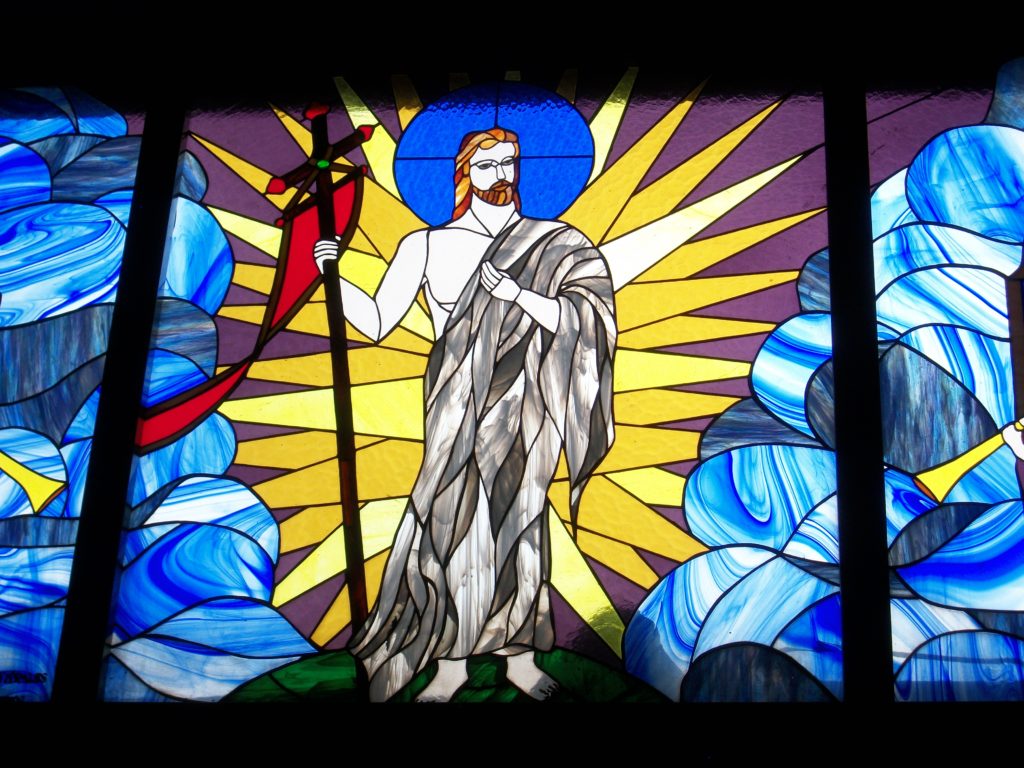Reflection by Monsignor Enrique Díaz: Praise the Lord, O my soul
23rd Ordinary Sunday

Monsignor Enrique Díaz Díaz shares with the readers of Exaudi his reflection on the Gospel of this Sunday, September 8, entitled: “Praise the Lord, O my soul.”
***
Isaiah 35, 4-7: “The eyes of the blind will be enlightened and the ears of the deaf will be opened”
Psalm 145: “Give thanks to the Lord, O my soul”
James 2, 1-5: “God has chosen the poor of the world to make them heirs of the Kingdom”
Saint Mark 7, 31-37: “He makes the deaf hear and the mute speak”
At the last Second Ecclesial Meeting, in the face of the serious challenges that our country and our Church present, the novelty of the spiritual conversation that Pope Francis has adopted as a method for the next Synod arose. Two keywords were felt throughout the meeting: listening and hope. And not as separate, but as keys to discovering the true Word that gives us all Hope in the face of a chaotic and disillusioned world.
Isaiah understands the current situation very well: pessimism in the face of serious problems, disillusionment and helplessness in the face of corruption, fear of violence… but he does not remain silent and launches his cry for all to hear: Say to those who are faint of heart: “Take courage! Do not be afraid. Behold, your God, the avenger and the just, is coming to save you.” These are not words of condemnation or reproach, they are not words of accusation. Isaiah understands well that we are frightened by the uncertainty of a future that is unclear or not at all clear, that we are paralyzed by fears of an attack, that we are worried about the future both personally and as communities. He understands well our fear of death, of difficulty, of trial and of pain. But he asks us to raise our eyes and contemplate our God, who comes to participate with us. He invites us to place our trust in Him. He cannot remain deaf to our suffering and our pain, He is there to share with us and to give it meaning. He comes to save us.
The most frequent complaint of those who suffer poverty and violence in a more dramatic way is to face deaf ears. “They don’t listen to us poor people,” is often their complaint, and they go looking for people who can give a voice that can be heard. We find ourselves in a country of deaf and dumb people. Those who have serious needs and many problems, no matter how tired they are of shouting, asking and demonstrating, are not heard. Those who have the authority, the power, the money or the possibilities of solving problems, have become incapable of listening to the cries of anguish and pain of the people. In our time, this fundamental problem of communication and language has worsened. Instead of making it easier to understand each other, we remain alone, we isolate ourselves, or we only relate to our small group.
We are deaf people who close our ears so as not to perceive realities that are shouting at us: an ecosystem that is exhausted, a nature that can no longer bear our destruction, brothers who cry out of hunger and need, but who find no answer. We have closed our ears and do not perceive these heart-rending cries. We have lost the ability to foster a warm, cordial and friendly encounter with others. We see them as strangers and distant, more from the heart than from a distance; we are not able to listen to them, understand them and care for them as brothers. Thus, we end up overwhelmed by our own isolation, we live in solitude, and we do not feel understood or loved by anyone. Today it would be very important to examine why I close myself off from certain people or groups, to look at when and where I turn a deaf ear, and to look for the reasons why I do not show solidarity, or communicate and remain alone. Frequently, the causes of this lack of communication, indifference and isolation have their roots in selfishness, mistrust and lack of solidarity. The image of the deaf-mute could also represent people who are cut off not only from their fellow men, but also from God. We do not have time to listen to his word, we do not want to hear his messages, we are not willing to let him enter our inner realm.
I am impressed by the way Christ heals the deaf-mute: “He took him aside from the crowd, put his fingers in his ears and touched his tongue with saliva.” It is a ritual of closeness and personalized attention. This is what communication requires. The person is not treated as if he were a token or a number, no controls are applied to him, but the opportune moment is created, where he can be heard, where his feelings can be felt. The walls of prejudice, discrimination, and separation are broken down, and a true dialogue can be established. Only then are the ears opened and the words that make sense are pronounced. Only then can there be true communication. Today, the command of Jesus resounds again: “Effetá!”, and we must open our ears and our hearts. It is necessary to listen to God in history, in the Gospel, in life, in people, discovering what He tells us, not what we want to hear. We must look for the appropriate moments to let the echo of his voice resonate within us, because he continues to speak to us in every moment of life. We also need to open our mouths to announce good news.
The apostle James, in the second reading, tells us, with a very hard but very true example, that not all people are heard in the same way, there are some who are ignored and ignored. He says this about the assemblies of his time, but the same thing happens in our assemblies, sometimes a nice suit is valued more than the dignity of a person. In our society there are many marginalized people who have no voice, no rights, no presence. They do not find space in education, in medicine, in life projects, in the dignity of work, they are like shadows that wander around without making noise. Or, they make noise, but are silenced by other interests. We need to end this society of deaf and dumb people, and build a new society where the voice and the word have their relevance, not mattering who pronounces it, but its content. A society where meeting one’s brother is more important than all material goods.
Do I really know how to listen to the “voices” of God? Am I able, even if with stuttering and slowness, to announce his message? Do I have space to meet him? And in the fraternal horizon: do I listen to the feelings and pain of my brothers? Do I remain silent in the face of injustice, lies and pain?
Lord Jesus, who have become the word and communication of the Father, open our ears to hear your message, our hearts to receive our brothers and our mouths to announce your gospel. Amen
Related

The Perspectivas del Trabajo Foundation is founded with the aim of promoting virtues for professional development
Exaudi Staff
25 April, 2025
2 min

Reflection by Bishop Enrique Díaz: Alleluia, alleluia
Enrique Díaz
20 April, 2025
5 min

Christ is Risen! Alleluia! Commentary by Fr. Jorge Miró
Jorge Miró
20 April, 2025
3 min

Easter: Mystery of Freedom
Carlos J. Gallardo
20 April, 2025
5 min
 (EN)
(EN)
 (ES)
(ES)
 (IT)
(IT)

